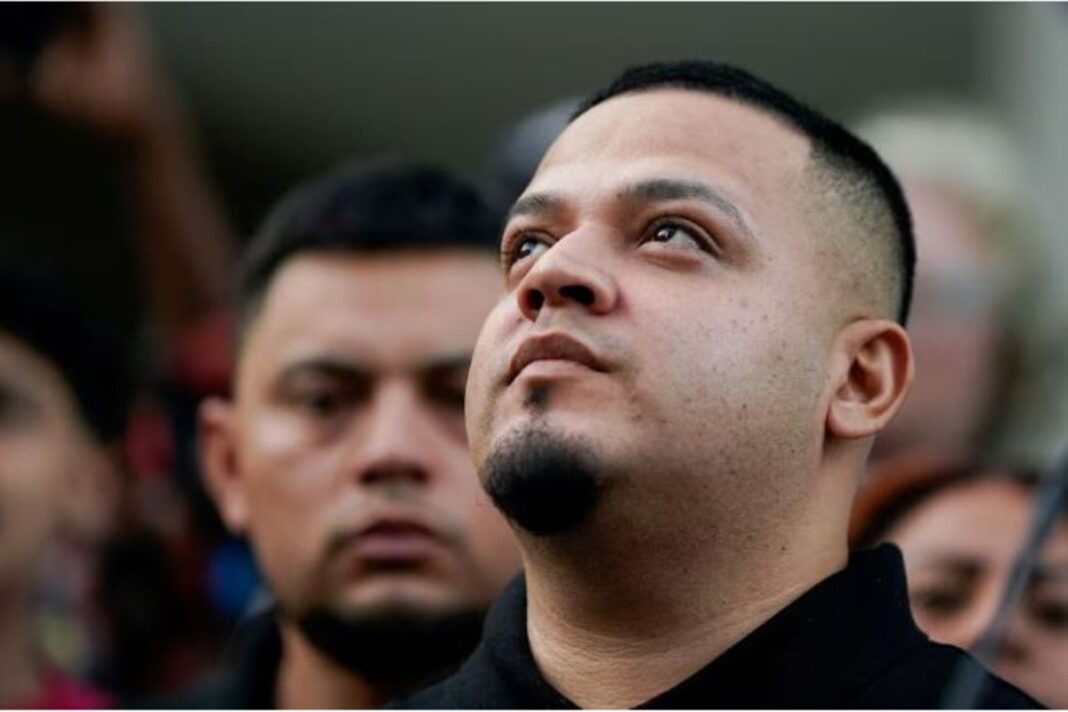The Trump Administration’s Agreement with Liberia on Migrant Kilmar Abrego
Background on Kilmar Abrego’s Case
The recent agreement between the Trump administration and Liberia regarding Kilmar Abrego underscores the complexities of U.S. immigration policies. Abrego, who entered the United States illegally and lived in Maryland with his American citizen family, became a significant focal point in the broader narrative of immigration during Trump’s tenure. His wrongful deportation to El Salvador earlier this year not only raised questions about U.S. immigration practices but also highlighted the challenges faced by migrants holding tenuous legal status.
The Deportation Controversy
In a court filing this past Friday, the Justice Department announced that Abrego could face another deportation to Liberia as soon as October 31. This new twist comes amidst a temporary blockade from U.S. District Judge Paula Xinis, who is currently reviewing Abrego’s request to be released from immigration detention. The judge’s decision could alter the course of Abrego’s future, leaving many anxiously contemplating the implications.
Humanitarian Aspect of Liberia’s Agreement
Liberia’s agreement to accept Abrego has been described as a “strictly humanitarian and temporary basis.” The African nation has committed to ensuring that Abrego will not be sent to any location where he could face serious dangers, including torture or persecution. While this seems like a potentially compassionate action, critics raise concerns about the effectiveness of such agreements, especially considering the significant distance between Liberia and Abrego’s family in Maryland.
Deportation to El Salvador: A Harrowing Experience
Before the current situation, Abrego was forcibly returned to El Salvador, where he was subjected to severe conditions in a mega-prison notorious for its abuses. His return was a direct violation of a prior court ruling that had barred such actions. This incident not only reflects the harsh realities of the U.S. deportation system but also highlights the emotional and legal turmoil faced by immigrants who find themselves ensnared in such processes.
Legal Challenges Ahead
Abrego’s legal team argues that he has grounds to challenge his removal by citing fears of persecution and torture. The upcoming court proceedings, including a critical hearing scheduled for November 4 and 5, will delve into accusations of unconstitutional treatment and retaliatory prosecution stemming from Abrego’s legal fight against his earlier deportation.
Accusations Against Abrego and the Government’s Stance
The administration claims that Abrego is connected to the MS-13 gang, a serious allegation his lawyers vehemently deny. They assert that the prosecution may be retaliatory, aimed at punishing Abrego for his legal challenges against the previous deportation. Furthermore, with the administration’s inclination to pursue criminal charges against him, additional complexities are added to an already fraught situation.
Distance from Family and Legal Representation Concerns
Abrego’s attorney, Simon Sandoval-Moshenberg, emphasized the emotional toll the distance from his family would create, noting the lack of any familial ties to Liberia. His statements reflect deep concerns about the punitive aspects of the government’s decision-making process, highlighting a broader sentiment among advocates who view such actions as excessively harsh and dismissive of constitutional rights.
Potential Alternatives and Impact on Future Hearings
Amidst this turmoil, Abrego’s legal representation has indicated a preference for Costa Rica—a Spanish-speaking nation that expressed willingness to accept him—but this option remains unapproved by the Trump administration. This ongoing negotiation raises questions about the influence of international relations on individual lives and the broader implications for U.S. foreign policy.
Perceived Rights Violations and International Relations
The Justice Department touts Liberia’s commitment to human rights and its historical relationship with the United States while simultaneously navigating a U.S. State Department report that pointed out significant human rights issues within Liberia itself. This contradiction amplifies concerns about whether the administration’s policies are genuinely humane or merely politically expedient.
Conclusion
As the situation with Kilmar Abrego unfolds, it continues to serve as a poignant illustration of the intersection between immigration law, human rights, and international diplomacy. Each development in this case is closely monitored, raising vital questions about the future of immigration practices in the United States and the potential humanitarian implications for those caught in the system.



